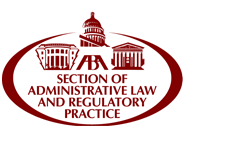Legal Issues in E-Rulemaking
Volume
63
Issue
4
First Page
893
Abstract
Since the enactment of the Administrative Procedure Act (APA) in 1946, the technological landscape has changed dramatically while the basic framework for notice-and-comment rulemaking has largely gone unchanged. Federal regulators, looking to embrace the benefits of electronic rulemaking, face considerable ambiguity about how established, procedural legal requirements apply to the web. For example, does the APA permit agencies to require comments to be submitted online? Are agencies required to screen the content of public comments before they are placed on Regulations.gov? Are electronic dockets a legally sufficient means of preserving the rulemaking record? Many of these issues and others have been swirling around electronic rulemaking (e-Rulemaking) since its inception, and exist whether rulemaking is accomplished entirely on paper or using more electronic means. This Article focuses on the legal issues that present themselves entirely, or more prominently, when agencies engage in e-Rulemaking.
Following a short background section on e-Rulemaking, Part I explains why updating the APA to address e-Rulemaking is unnecessary. Part II explores whether and how agencies should screen public comments before sharing them online and suggests a fundamental change to the way comments are posted on the biggest online rulemaking website, Regulations.gov. Part III analyzes the legal issues associated with using an electronic docket to compile the rulemaking record, finding that well-designed electronic dockets pose no significant legal risks but that the courts could probably do more to embrace electronic filing. Part IV shows that the most basic of federal requirements, the recordkeeping requirements of the Federal Records Act, apply to e-Rulemaking and suggests ways to ensure compliance. The Article concludes with a recap of the Article’s recommendations.
